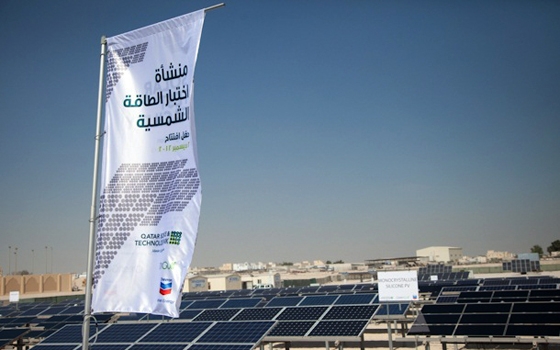Qatar has undertaken to generate 2% of its total power output from renewable sources by 2020 as the development of alternative energy presents new opportunities for the country, offering the potential for renewable, low-carbon energy sources, new economic demand, and reduced emissions.
Solar represents Qatar's strongest opportunities for alternative energy, with a number of solar plants under development.
"Qatar has undertaken to generate 2% of its total power from renewable sources by 2020 – a commitment made by HH the Father Emir Sheikh Hamad bin Khalifa al-Thani during his speech at the closing of COP18. In addition, Qatar signed a memorandum of understanding with the International Renewable Energy Agency (IRENA) to support the development of renewable energy within Qatar," according to Qatar Energy & Industry Sector Sustainability Report 2012.
As an example of investment for renewable energy, polysilicon, a critical component of solar power cells, will now be produced in Qatar following an agreement between Kahramaa and Qatar Solar Technologies (QSTec) for a $1bn polysilicon production facility in Ras Laffan.
Once operational, this factory will support the growth of solar power and technologies in Qatar, creating new economic opportunities.
In response to the new impetus behind alternative energy, a significant increase in renewable energy projects occurred in 2012.
New projects include Nebras Power energy venture between Qatar Electricity and Water Company, Qatar Petroleum International and Qatar Holding, which will invest $1bn in renewable energy across the globe, a solar test facility at the Qatar Science and Technology Park that will invest $20mn towards development of solar technologies in Qatar, and a 200MW solar park led by Kahramaa, which will generate solar energy by 2020.
Gulf Times
21 September





































































